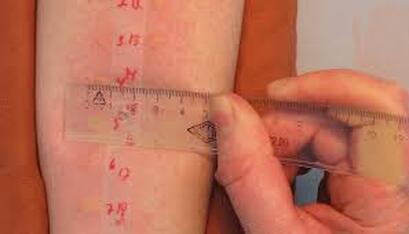Diagnosis Hay Fever

Your doctor will ask you questions about your allergic reaction, such as how quickly it develops, how severe it is and the possible cause.
If your doctor thinks you may have a food allergy, they might carry out some simple tests, such as a blood test. Or, they may refer you to a specialist allergy clinic for tests. Common allergy tests are listed below.
Skin tests. A weak liquid containing the suspected cause of your allergy is put on your skin and a small needle prick is made through it. After 15 to 25 minutes, you’re likely to get a small reaction around the needle prick if you’re allergic to the food tested.
Blood tests. These measure the amount of antibodies in your blood to different food proteins. The antibodies are known as immunoglobulins (IgE, IgG, IgA).
Elimination diets. This is when you stop eating the food or foods that may be causing your allergic reaction to see whether your symptoms get better. If they do, you may be advised to start eating the suspected food again to see if your symptoms come back. If they do, it’s likely that you’re allergic to that food.
Food challenges. You’ll be given a small amount of food to eat to see if you have a reaction to it. This test should always be done with a specialist, so you can be safely treated if needed.
A food allergy is sometimes confused with food intolerance. An intolerance can make you feel ill but isn’t usually as severe or potentially harmful in the same way that a food allergy can be.
